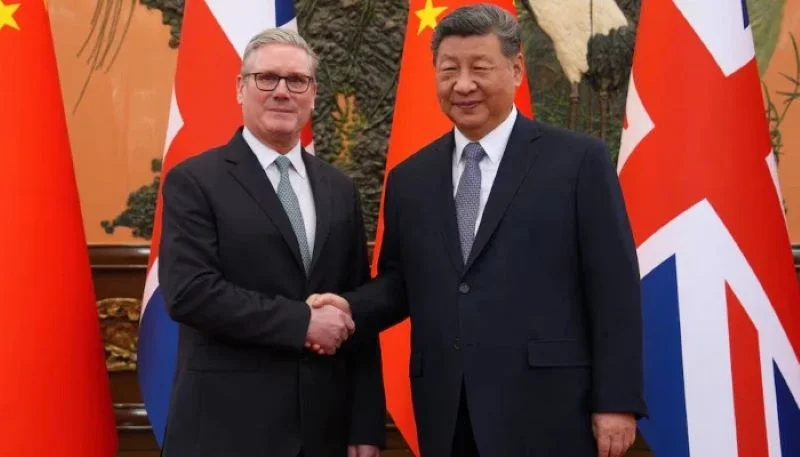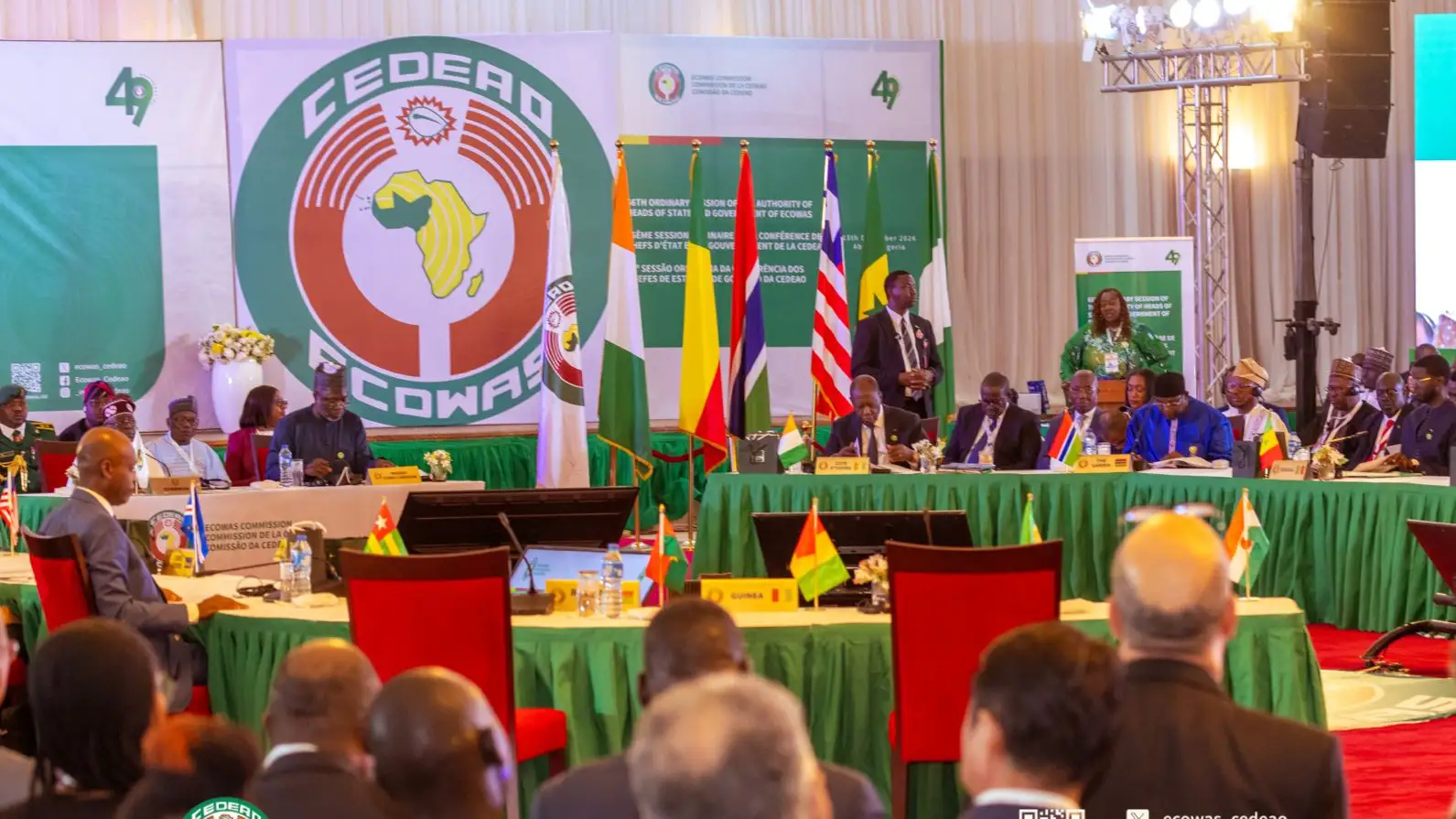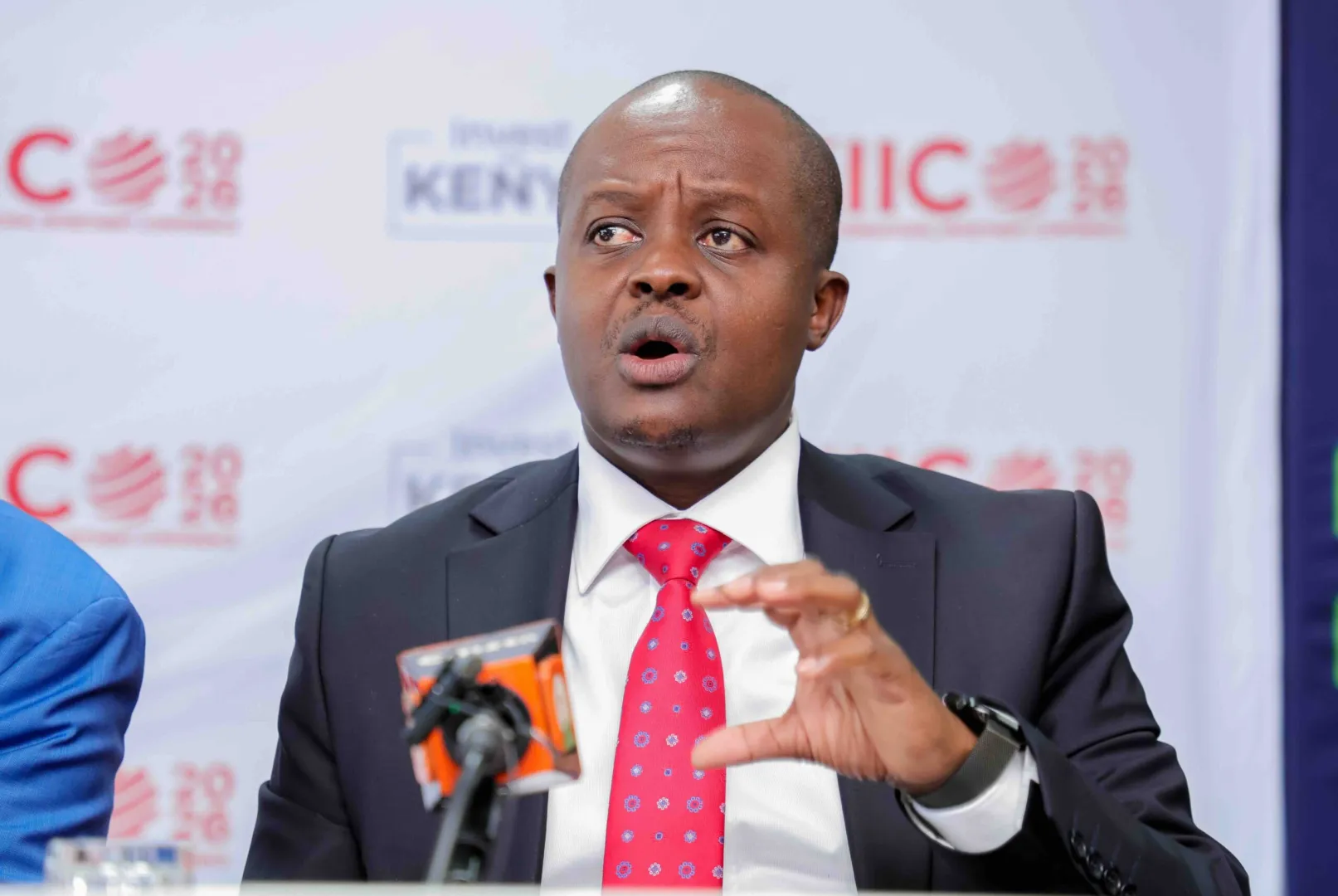In a development that has caught the attention of market observers, Shri Krishana Overseas Limited (SKL) Plc, a packaging solutions provider that recently made its debut on the Nairobi Securities Exchange (NSE), has issued a profit warning barely two months after listing. The company, which trades on the Small and Medium Enterprises (SME) Market Segment, announced that its full-year profits are expected to decline by more than 25% as a direct consequence of substantial borrowing costs incurred to complete its ambitious Kisaju plant project in Kitengela.
Build the future you deserve. Get started with our top-tier Online courses: ACCA, HESI A2, ATI TEAS 7, HESI EXIT, NCLEX-RN, NCLEX-PN, and Financial Literacy. Let Serrari Ed guide your path to success. Enroll today.
The profit warning comes on the heels of the company’s half-year results for the period ended June 30, 2025, which revealed a dramatic 70.4% plunge in net earnings. The company’s net profit dropped to KSh 2.03 million from KSh 6.85 million recorded during the same period in 2024, representing a significant deterioration in bottom-line performance that has raised questions among investors and analysts about the timing and execution of the company’s expansion strategy.
Understanding the Financial Performance
The unaudited financial statements for Shri Krishana provide a revealing picture of a company undergoing significant transformation while grappling with the financial pressures that accompany rapid expansion. Revenue for the six-month period declined by approximately 6%, falling from KSh 168.4 million in June 2024 to KSh 158.7 million in June 2025.
Company management has attributed this revenue decline to normal business volatility owing to the seasonal nature of the packaging industry. The packaging sector often experiences fluctuations in demand based on various factors, including agricultural harvest cycles, festive seasons that drive consumer goods production, and broader economic conditions affecting manufacturing activity.
As a consequence of the revenue decline, gross profit also contracted, falling from KSh 51.8 million to KSh 48.4 million during the review period. This represents a gross profit margin that remains relatively healthy at approximately 30.5%, suggesting that despite volume challenges, the company has maintained its pricing discipline and operational efficiency at the production level.
The Burden of Expansion: Analyzing the Debt Load
The most striking aspect of Shri Krishana’s financial position is the dramatic increase in long-term borrowings, which serves as the primary explanation for the profit warning. As of June 30, 2025, the company’s long-term debt stood at KSh 113 million, representing an astronomical increase from just KSh 3.5 million as of June 30, 2024.
This nearly 32-fold increase in long-term borrowings reflects the company’s aggressive investment strategy aimed at positioning itself for future growth. The funds have been deployed primarily toward two key initiatives: the construction of a new state-of-the-art manufacturing plant in Kisaju, Kitengela, and the acquisition of additional machinery to enhance production capacity at the company’s existing Industrial Area facility in Nairobi.
The interest expense associated with this substantial debt load has significantly impacted the company’s profitability. In the current interest rate environment, where the Central Bank of Kenya’s benchmark rate has remained elevated to combat inflation, borrowing costs for businesses have been substantial. For a company of SKL’s size, servicing debt of KSh 113 million can consume a significant portion of operating profits, particularly during the construction and pre-commissioning phases when the borrowed capital has not yet begun generating returns.
The Kisaju Project: Strategic Rationale and Timeline
Despite the near-term financial pain, Shri Krishana’s management remains committed to the Kisaju project, viewing it as essential to the company’s long-term competitiveness and growth trajectory. The new facility in Kajiado County is projected to dramatically increase the company’s production capacity to 24,000 tonnes of corrugated boxes annually, representing a substantial expansion from current capacity levels.
The corrugated box manufacturing industry in Kenya has experienced steady growth, driven by expanding e-commerce activity, increased consumer goods production, agricultural exports requiring packaging, and general economic development. By significantly expanding capacity, SKL aims to capture a larger share of this growing market while also potentially serving regional markets in East Africa.
According to the company’s strategic plan, the investment in the Kisaju plant remains on schedule despite the financial pressures. Civil works on the facility are scheduled for completion within the next two months, with the first phase of operations expected to commence by the end of 2025. Full production capacity is targeted for achievement by the end of the first quarter of 2026.
This timeline is critical for the company’s financial recovery. Once operational, the new plant should generate substantial additional revenue while spreading fixed costs across a larger production base, thereby improving overall profit margins. The key question for investors is whether the company can successfully navigate the challenging interim period without requiring additional capital injections or facing liquidity constraints.
Diversified Product Portfolio and Service Offerings
Shri Krishana Overseas Limited has built its business around a comprehensive portfolio of packaging solutions that serve diverse customer needs across multiple industries. This diversification provides some resilience against sector-specific downturns and allows the company to leverage relationships across its customer base.
The company’s primary products include corrugated cartons and boxes, which form the backbone of its business and serve industries ranging from food and beverage to electronics and pharmaceuticals. These products are essential for protecting goods during storage and transportation, making them relatively recession-resistant compared to discretionary consumer products.
Beyond corrugated packaging, SKL manufactures adhesive labels used for branding and product information, non-woven bags increasingly popular as environmentally friendly alternatives to plastic bags, strapping rolls and rubber bands for securing packages, and various promotional items that businesses use for marketing purposes. The company also offers comprehensive printing services, allowing clients to customize their packaging with logos, product information, and marketing messages.
This rich tapestry of services positions Shri Krishana as a one-stop shop for businesses seeking packaging solutions, potentially providing cross-selling opportunities and strengthening customer relationships through increased wallet share.
Blue-Chip Client Portfolio
The quality of Shri Krishana’s customer base provides reassurance about the company’s market position and competitive capabilities. The firm serves several well-established businesses across different sectors, demonstrating its ability to meet the quality and reliability standards demanded by serious commercial enterprises.
Notable clients include Sian Group, a diversified conglomerate with interests across multiple sectors; Laboratory and Allied Limited, a leading manufacturer of pharmaceutical and nutritional products in East Africa; Elgon Kenya, a major player in the cosmetics and personal care manufacturing industry; Dave Flowers, representing the agricultural export sector; and Daima Milk, part of Kenya’s significant dairy processing industry.
This diverse client roster across pharmaceuticals, cosmetics, agriculture, and food processing demonstrates SKL’s ability to meet varied packaging specifications and quality standards. Retaining and growing relationships with such established businesses often provides recurring revenue streams and references that facilitate new business development.
The Entrepreneurial Vision: Founders’ Background
The story of Shri Krishana Overseas Limited is inextricably linked to its founders, Dr. Sonvir Singh and Nirmal Chaudhary, who established the company in 2009 during a period when Kenya’s manufacturing sector was experiencing modernization and growth.
Dr. Sonvir Singh serves as Managing Director and co-founder, bringing leadership and industry expertise to the venture. His vision has guided the company from its inception through its growth phases and ultimately to its recent public listing.
Nirmal Chaudhary, who serves as Financial Director, relocated to Kenya from India in 2007, bringing with her considerable expertise and strong academic credentials. Her educational background includes a Master’s degree in Computer Science and a Diploma in Finance and Accounting, a combination that provides both the technical and financial acumen necessary for modern manufacturing management.
Chaudhary’s background reflects a broader trend of skilled professionals from South Asia contributing to Kenya’s industrial development, particularly in manufacturing sectors where India has developed significant expertise. The packaging industry, in particular, has benefited from knowledge transfer and investment from entrepreneurs with experience in more mature markets.
Together, these founders have built Shri Krishana from a startup into a company with sufficient scale and governance standards to qualify for public listing, demonstrating entrepreneurial success and business acumen.
One decision can change your entire career. Take that step with our Online courses in ACCA, HESI A2, ATI TEAS 7, HESI EXIT, NCLEX-RN, NCLEX-PN, and Financial Literacy. Join Serrari Ed and start building your brighter future today.
The IPO Journey and Share Price Performance
Shri Krishana Overseas Limited listed on the NSE’s SME Market Segment on July 24, 2025, through a listing by introduction valued at approximately KSh 298 million. The listing by introduction method allowed existing shareholders to gain liquidity for their holdings without the company raising fresh capital, which was appropriate given the substantial debt financing already secured for the Kisaju expansion.
The SME Market Segment was established by the NSE to provide smaller, growing companies with access to capital markets while applying regulatory requirements proportionate to their size. This segment has become an important avenue for mid-sized Kenyan businesses to access growth capital and improve corporate governance standards.
On its listing day, SKL shares closed at KSh 5.90, establishing an initial market valuation. Despite the profit warning issued just two months later, the company’s share price has performed remarkably well, rising to KSh 8.00 as of the latest trading sessions. This represents a gain of 35.6% from the listing price, or 39.3% from the IPO day closing price, giving the company a current market capitalization of approximately KSh 415 million.
This strong share price performance despite the profit warning suggests that investors are looking beyond near-term earnings pressure and instead focusing on the company’s long-term growth potential once the Kisaju facility becomes operational. The market appears to be pricing in expectations of substantially higher future earnings once the expansion investments begin generating returns.
Understanding Profit Warnings in Context
For investors unfamiliar with profit warnings, it’s important to understand what they signify and how markets typically respond. A profit warning is a statement issued by a publicly listed company alerting shareholders that its earnings will fall significantly short of previous guidance or market expectations, typically defined as a decline of 25% or more.
Regulatory requirements in Kenya mandate that listed companies issue profit warnings when they become aware that their financial performance will deviate materially from expectations, ensuring that all investors have access to material information simultaneously and can make informed decisions about their holdings.
Profit warnings can result from various factors, including unexpected operational challenges, market conditions deteriorating beyond projections, strategic decisions that depress near-term earnings in favor of long-term positioning (as in SKL’s case), or accounting adjustments. The context matters significantly in assessing the implications for a company’s long-term prospects.
In Shri Krishana’s case, the profit warning is directly attributable to a deliberate strategic choice to invest heavily in expansion capacity, with management and the board evidently concluding that the long-term benefits of the Kisaju facility justify the near-term earnings pressure from borrowing costs.
Broader Industry Context and Competitive Landscape
The packaging industry in Kenya has evolved significantly over recent decades, transforming from a fragmented sector dominated by small-scale operators to one increasingly characterized by professional, well-capitalized firms capable of meeting international quality standards.
Several factors are driving growth in Kenya’s packaging sector. The expansion of modern retail formats including supermarkets and shopping malls has increased demand for professionally packaged consumer goods. The growth of e-commerce is generating substantial demand for packaging materials suitable for product shipping. Kenya’s position as an agricultural exporter requires significant packaging for flowers, vegetables, coffee, tea, and other products destined for international markets.
Additionally, increasing consumer awareness about product quality and safety has elevated standards for packaging, favoring professional manufacturers over informal operators. Environmental consciousness is also driving demand for sustainable packaging solutions, creating opportunities for companies that invest in eco-friendly materials and processes.
However, the sector also faces challenges. Raw material costs, particularly for paper and cardboard, can be volatile and are often influenced by international commodity prices. The industry requires continuous capital investment to maintain modern equipment and remain competitive. Competition from both local manufacturers and imports can pressure margins. Additionally, economic slowdowns directly impact packaging demand as manufacturing and commercial activity declines.
Financial Metrics and Valuation Considerations
For investors evaluating Shri Krishana as a potential investment, several financial metrics warrant consideration beyond the immediate profit warning. The company’s price-to-earnings ratio has obviously risen given the decline in earnings, potentially making the shares appear expensive on current earnings. However, sophisticated investors often look through temporary earnings depression when it results from growth investments.
The company’s debt-to-equity ratio has clearly increased substantially with the KSh 113 million in borrowings, raising questions about financial leverage and the company’s ability to service debt from operating cash flows. However, if the Kisaju facility performs as projected, the expanded revenue base should make the debt burden manageable.
Return on equity (ROE) has undoubtedly declined given lower profits, but again, this metric should improve as the new facility becomes operational. The key question is whether the incremental return on the invested capital will exceed the company’s cost of capital, creating shareholder value over time.
Risk Factors and Challenges Ahead
Despite management’s optimism and the market’s positive reception thus far, Shri Krishana faces several risks that could impact its recovery trajectory and long-term success.
Execution Risk: The successful completion of the Kisaju facility on schedule and within budget is critical. Construction projects can face delays, cost overruns, or technical challenges that impact timelines and economics. Any significant delays in commissioning the plant would extend the period during which the company is servicing debt without corresponding revenue generation.
Market Demand Risk: The company’s expansion assumptions depend on continued growth in packaging demand. If economic conditions deteriorate or key customer sectors face challenges, demand for the expanded capacity might not materialize as projected, leaving the company with underutilized assets and a heavy debt burden.
Working Capital Pressures: Manufacturing businesses typically require substantial working capital to fund inventory and receivables. As SKL expands production, working capital requirements will increase, potentially straining cash flows during the ramp-up period.
Competition: Existing competitors may respond to SKL’s expansion by protecting their market shares through pricing actions or their own capacity investments. Additionally, the company’s success might attract new entrants to the market, intensifying competition.
Interest Rate Risk: With substantial floating-rate debt, the company is exposed to interest rate fluctuations. If the Central Bank of Kenya maintains high rates or increases them further to combat inflation, SKL’s interest expenses could exceed projections, further pressuring profitability.
Regulatory and Governance Framework
As a publicly listed company, Shri Krishana is subject to enhanced regulatory oversight and governance requirements compared to private companies. The Capital Markets Authority (CMA) enforces regulations designed to protect investors and ensure market integrity.
These requirements include publishing quarterly and annual financial statements audited by qualified accountants, holding annual general meetings where shareholders can question management and vote on key matters, maintaining independent directors on the board to provide oversight, and promptly disclosing material information that could affect the share price.
For a company that has been publicly listed for only two months, adapting to these requirements while managing a major expansion project represents a significant management challenge. The company must balance the need for transparency with competitive considerations and manage investor expectations through clear, consistent communication.
Looking Ahead: Path to Recovery
The critical period for Shri Krishana extends from now through the first quarter of 2026, when the Kisaju facility is expected to reach full production capacity. During this time, the company must successfully complete construction, install and commission equipment, hire and train staff, secure necessary regulatory approvals and quality certifications, and begin ramping up production while maintaining quality standards.
If executed successfully, the expanded capacity should enable SKL to substantially increase revenues while spreading fixed costs across a larger production base, improving operating leverage and profitability. The company’s profit margins should recover and potentially exceed historical levels as the benefits of scale and modern equipment efficiency are realized.
Investors and analysts will be closely monitoring several key indicators during this period: monthly production volume data as the new facility ramps up, any updates to the commissioning timeline, working capital trends reflecting order flow and customer deposits, and commentary from management about customer interest in the expanded capacity.
Conclusion: Balancing Near-Term Pain with Long-Term Gain
Shri Krishana Overseas Limited’s profit warning, issued just two months after its NSE listing, encapsulates a classic dilemma in business strategy: the tension between near-term financial performance and long-term competitive positioning. Management has clearly prioritized building capacity for future growth over maintaining current profitability, a decision that has resulted in substantial earnings pressure but could position the company for success in Kenya’s evolving packaging market.
The market’s response, with the share price rising more than 35% despite the profit warning, suggests that investors are willing to look through the near-term challenges and focus on the company’s growth potential. However, this confidence is conditional on successful execution of the Kisaju project and realization of the projected benefits.
For entrepreneurs and business observers, Shri Krishana’s story offers valuable lessons about the challenges of scaling manufacturing businesses, the importance of timing strategic investments, and the complexities of managing a public company through a major expansion phase. The next six to twelve months will be crucial in determining whether the company’s bold expansion strategy proves prescient or premature.
As with many growth stories, the ultimate judgment on Shri Krishana’s current strategy will only be possible in retrospect, once the Kisaju facility is operational and its impact on the company’s financial performance becomes clear. For now, the company, its founders, and its shareholders are placing a substantial bet on Kenya’s packaging industry growth trajectory and their ability to capture an expanded share of that growing market.
Ready to take your career to the next level? Join our Online courses: ACCA, HESI A2, ATI TEAS 7 , HESI EXIT , NCLEX – RN and NCLEX – PN, Financial Literacy!🌟 Dive into a world of opportunities and empower yourself for success. Explore more at Serrari Ed and start your exciting journey today! ✨
Track GDP, Inflation and Central Bank rates for top African markets with Serrari’s comparator tool.
See today’s Treasury bonds and Money market funds movement across financial service providers in Kenya, using Serrari’s comparator tools.
Photo source: Google
By: Montel Kamau
Serrari Financial Analyst
2nd October, 2025
Article, Financial and News Disclaimer
The Value of a Financial Advisor
While this article offers valuable insights, it is essential to recognize that personal finance can be highly complex and unique to each individual. A financial advisor provides professional expertise and personalized guidance to help you make well-informed decisions tailored to your specific circumstances and goals.
Beyond offering knowledge, a financial advisor serves as a trusted partner to help you stay disciplined, avoid common pitfalls, and remain focused on your long-term objectives. Their perspective and experience can complement your own efforts, enhancing your financial well-being and ensuring a more confident approach to managing your finances.
Disclaimer: This article is for informational purposes only and does not constitute financial advice. Readers are encouraged to consult a licensed financial advisor to obtain guidance specific to their financial situation.
Article and News Disclaimer
The information provided on www.serrarigroup.com is for general informational purposes only. While we strive to keep the information up to date and accurate, we make no representations or warranties of any kind, express or implied, about the completeness, accuracy, reliability, suitability, or availability with respect to the website or the information, products, services, or related graphics contained on the website for any purpose. Any reliance you place on such information is therefore strictly at your own risk.
www.serrarigroup.com is not responsible for any errors or omissions, or for the results obtained from the use of this information. All information on the website is provided on an as-is basis, with no guarantee of completeness, accuracy, timeliness, or of the results obtained from the use of this information, and without warranty of any kind, express or implied, including but not limited to warranties of performance, merchantability, and fitness for a particular purpose.
In no event will www.serrarigroup.com be liable to you or anyone else for any decision made or action taken in reliance on the information provided on the website or for any consequential, special, or similar damages, even if advised of the possibility of such damages.
The articles, news, and information presented on www.serrarigroup.com reflect the opinions of the respective authors and contributors and do not necessarily represent the views of the website or its management. Any views or opinions expressed are solely those of the individual authors and do not represent the website's views or opinions as a whole.
The content on www.serrarigroup.com may include links to external websites, which are provided for convenience and informational purposes only. We have no control over the nature, content, and availability of those sites. The inclusion of any links does not necessarily imply a recommendation or endorsement of the views expressed within them.
Every effort is made to keep the website up and running smoothly. However, www.serrarigroup.com takes no responsibility for, and will not be liable for, the website being temporarily unavailable due to technical issues beyond our control.
Please note that laws, regulations, and information can change rapidly, and we advise you to conduct further research and seek professional advice when necessary.
By using www.serrarigroup.com, you agree to this disclaimer and its terms. If you do not agree with this disclaimer, please do not use the website.
www.serrarigroup.com, reserves the right to update, modify, or remove any part of this disclaimer without prior notice. It is your responsibility to review this disclaimer periodically for changes.
Serrari Group 2025
















